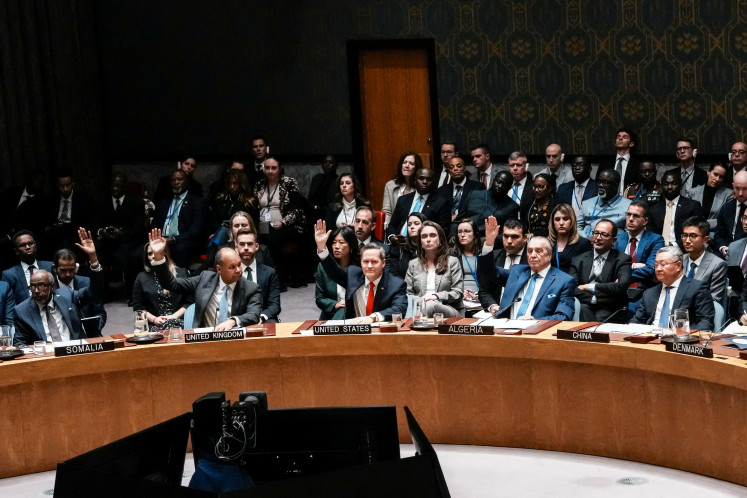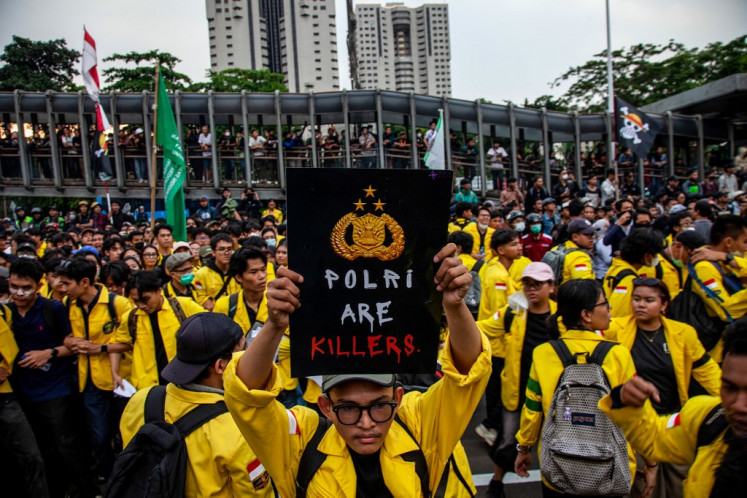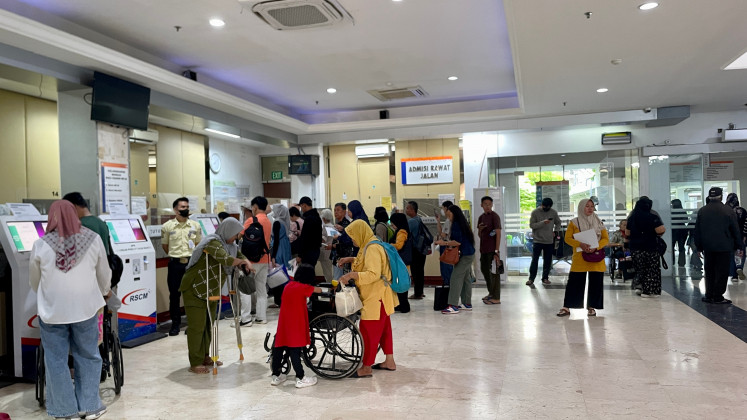Popular Reads
Top Results
Can't find what you're looking for?
View all search resultsPopular Reads
Top Results
Can't find what you're looking for?
View all search resultsSoil as carbon sink: Indonesia’s role in mitigating climate change
AFP/Cristina QuiclerWorld Soil Day, which fell on Dec
Change text size
Gift Premium Articles
to Anyone
AFP/Cristina Quicler
World Soil Day, which fell on Dec. 5, is an annual celebration to highlight the importance of soil as a fundamental part of the ecosystem and a key component to sustain human life. The special day also serves to remind us — communities, organizations and the government — to protect our environment from soil degradation, which can result from natural or human activities.
This year’s theme was “Stop soil erosion. Save our future” and was one of the highlights of the international conference on climate change in Madrid, which will run until Friday. Soil erosion is one of the world’s main environmental threats as it causes the soil to lose its function.
The soil provides food, biomass, raw materials, habitats and physical and cultural environments for mankind. Nevertheless, the contribution of soil to climate mitigation has been largely ignored. Soil helps store carbon. The biomass of living things, the source of carbon, enters the soil upon their death and becomes soil organic carbon, which is further accumulated as soil organic carbon stock. Carbon in the soil is released into the atmosphere through mineralization or biomass burning. Soil, therefore, determines the level of carbon in the atmosphere and plays a vital role in mitigating climate change.
According to the World Bank, Indonesia’s land area — 1.8 million square kilometers — was 31.5 percent agricultural land and 50.2 percent forest in 2016. That area also covers peat soil and volcanic soil in some parts of Indonesia. Peat soil is prevalent in Sumatra, such as in the Jambi, Riau, Bengkulu and South Sumatra provinces as well as in almost all areas of Kalimantan.
Volcanic soils can be found in areas with active or inactive volcanoes such as in Java, Sumatra and Bali. Peatland soils are the source of methane gas, which contributes to climate change more than carbon dioxide.
Volcanic soil is a more capacious carbon sink than common soil. If all carbon stored in Indonesian soil was converted into atmospheric carbon dioxide, Indonesia would be a crucial country for the mitigation of climate change.
Compared to forests, there has been less attention paid to the soil, especially regarding its ability to store carbon. As one of the countries to ratify the Paris Agreement, Indonesia has committed to reduce greenhouse gas emissions by 29 percent by 2030. To achieve this commitment, preventing and reducing deforestation are considered the main issues. It is still presumed that deforestation is the major cause of greenhouse gas emissions even though soil is also a significant contributor when fire is involved. Indonesia should pay more attention to the soil by providing guidelines about soil management. Soil protection and soil conservation are the main issues in maintaining soil sustainability.
Farmers who work directly with soil often lack knowledge about soil management. Many still use fire to clear biomass or plant residue before planting their crops and are unaware of the impact of soil tillage on carbon dioxide emission.
Therefore, the government should actively emphasize the importance of soil and provide standard operational procedures regarding soil management.
In addition to farmers, people in general should be educated about the soil’s function as a carbon sink. Parents can also teach children — among others — to avoid burning trash because it transfers carbon to the atmosphere from the soil, which is supposed to act as a carbon sink.
Individuals, as part of communities and organizations, can also take part in protecting our soil from organic carbon decline. Following World Soil Day, let’s store carbon in the soil and reduce carbon in the atmosphere.
__________________
Lecturer and researcher in chemistry education, University of Bengkulu, PhD candidate at Universität für Bodenkultur, Vienna.









